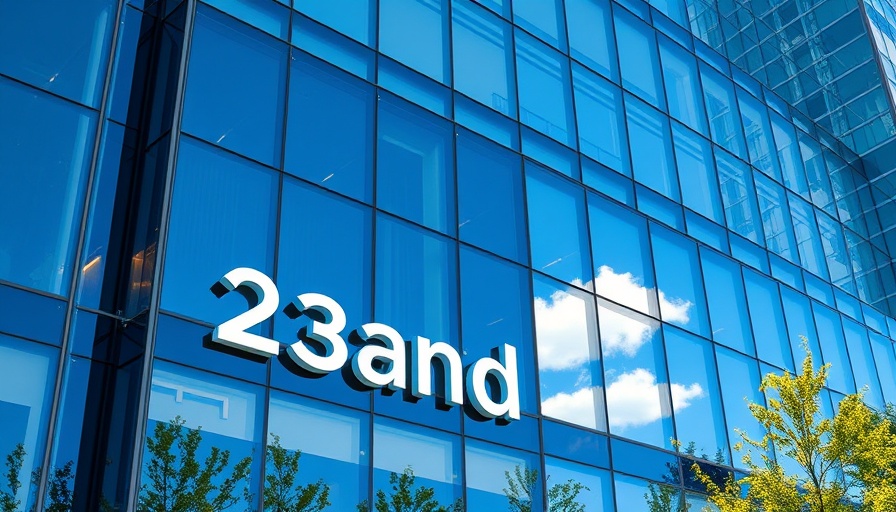
23andMe Enters Bankruptcy: What It Means for Users
The news of 23andMe filing for bankruptcy has sent ripples through the health and wellness community. As a leading provider of direct-to-consumer genetic testing, the company’s downfall raises significant questions about the future of personal data privacy and consumer trust in health-related tech. What does this mean for those who rely on 23andMe for insights into their health, genealogy, and more?
The Health Tech Landscape: A Fragile Ecosystem
With the rise of health and wellness companies utilizing advanced genetics, 23andMe was once seen as a pioneer in democratizing genetic information. However, the landscape is fraught with uncertainty. Bankruptcy doesn’t just signify financial trouble; it also raises concerns about data security and the fate of personal health information stored in the company’s databases.
Understanding Bankruptcy: What’s Next for Your Data?
For consumers, the most pressing question is likely: What happens to my data? While company assets, including personal health data, could potentially be sold off to pay creditors, there’s little oversight designed to protect consumer interests in such situations. Experts stress the importance of understanding what data you shared and the potential implications if it ends up under new ownership.
The Connection to Community Wellness
The implications of 23andMe's bankruptcy resonate far beyond individual users. Community health and wellness initiatives rely on the availability of information and resources that companies like 23andMe provide. Their data has contributed to research and awareness of various health conditions, from genetic disorders to lifestyle diseases.
Alternative Paths to Wellness: Exploring New Resources
As consumers navigate the aftermath of this bankruptcy, many might wonder where to turn next. Fortunately, there are numerous alternatives in the health and wellness space. Engaging local wellness centers, attending health-related community events, or embracing holistic approaches such as naturopathy can provide valuable insights into personal health.
Broader Implications: The Future of Consumer Health Data
This incident serves as a stark reminder of the need for stronger regulations surrounding data privacy in health tech. It poses crucial questions for policymakers and consumers alike about what safeguards are necessary to protect individual information as the health industry evolves. How can users ensure their data remains secure in a rapidly changing landscape?
Make Informed Decisions: What You Can Do Now
Here are some actionable steps for individuals who have used 23andMe or similar services:
- Review what personal information you shared with 23andMe and consider invoking any rights you have regarding that data.
- Explore alternative health and wellness products and services that prioritize data privacy and patient security.
- Stay informed about legislative movements aimed at better protecting consumer data in the health sector.
Emotional Considerations and Consumer Trust
Psychologically, the situation resonates with many users who may feel a sense of vulnerability regarding their sensitive health information. As consumers, it’s crucial to rebuild trust in the health tech industry, understanding that while innovation is necessary, protecting personal data must be a top priority.
The Path Forward: What This Means for Health and Wellness
In conclusion, while 23andMe’s bankruptcy is unsettling, it also opens the door for a larger conversation about health, wellness, and technology. As we shift toward a more informed community, let’s prioritize consumer health privacy while exploring diverse avenues for obtaining trustworthy health insights.
For those seeking guidance on navigating health and wellness, consider engaging with local wellness centers or exploring alternative health practices. Community resources can provide invaluable support and information to help keep your health secure and well-informed.
 Add Row
Add Row  Add
Add 




 Add Row
Add Row  Add
Add 


Write A Comment